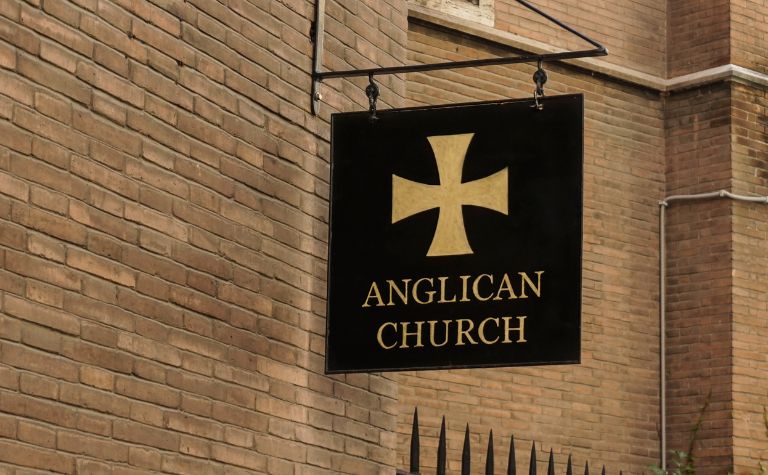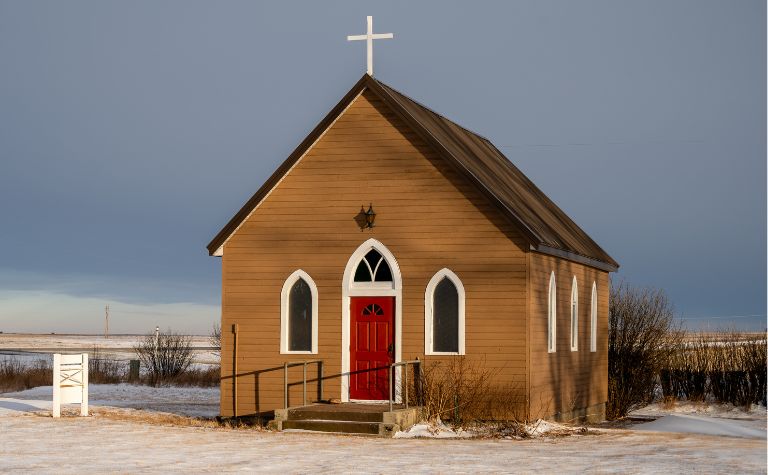Lutheranism and Anglicanism are two prominent Christian denominations with rich histories and global followings.
While both emerged as reforms to Roman Catholicism, they have distinct origins, beliefs, and practices that set them apart.
This article aims to compare Lutheranism and Anglicanism, exploring their key differences and similarities.
From their founding figures to their views on sacraments and social issues, we’ll examine the unique characteristics that define each denomination.

Comparing Lutheranism and Anglicanism: An Overview
The term “Lutheran” is derived from Martin Luther, the German theologian who initiated the Protestant Reformation. “Anglicanism” comes from the Latin word “Anglicana,” meaning “English.”
| Lutheranism | Anglicanism | |
|---|---|---|
| Name | Lutheranism | Anglicanism |
| Size | Approx. 80 million worldwide | Approx. 85 million worldwide |
| Date Started | 1517 | 1534 |
| Founder | Martin Luther | King Henry VIII |
| Key Beliefs | Justification by faith alone, Priesthood of all believers, two sacraments: Baptism and Holy Communion | Via Media (Middle Way) between Catholicism and Protestantism, Apostolic Succession, importance of liturgy |
| Key Practices | Worship services, baptism, holy communion | Worship services, baptism, communion, confirmation |
| Divisions | ELCA (Evangelical Lutheran Church in America); LCMS (Lutheran Church–Missouri Synod); WELS (Wisconsin Evangelical Lutheran Synod) | Church of England; Episcopal Church (USA); Anglican Church of Canada |
| Central Location | No central location; strong presence in Germany and Scandinavia | Canterbury, England |
| Sacred Texts | Bible (Old and New Testaments) | Bible (Old and New Testaments), Book of Common Prayer |
Why is Anglicanism called “The Middle Way”?
Anglicanism is often called “The Middle Way” because it seeks to strike a balance between Protestantism and Catholicism.
It incorporates elements of both traditions, such as the Protestant emphasis on the Bible and the Catholic focus on liturgy and sacraments, aiming for a moderate, comprehensive approach.

Lutheran and Anglican Beliefs: Similarities and Differences
Lutherans and Anglicans have many overlapping beliefs, including the Trinity. Their views on communion and baptism differ. See the comparison charts below for more information.
| Lutheran | Anglican | |
|---|---|---|
| God | One God in three persons: Father, Son, and Holy Spirit | One God in three persons: Father, Son, and Holy Spirit |
| The Universe | Created by God; fallen due to sin | Created by God; fallen due to sin |
| Ultimate Reality | God is the ultimate reality; omnipotent, omniscient | God is the ultimate reality; omnipotent, omniscient |
| Human Beings | Created in God’s image; fallen due to original sin | Created in God’s image; fallen due to original sin |
| Problem with the World | Sin and separation from God | Sin and separation from God |
| The Solution to the Problem | Salvation through faith in Jesus Christ | Salvation through faith in Jesus Christ and good works |
| The Afterlife | Heaven for believers; eternal separation from God for non-believers | Heaven for believers; eternal separation from God for non-believers |

Examining Lutheran Anglican Practices
| Lutheran | Anglican | |
|---|---|---|
| Worship Services | Liturgical, but varies by synod | Highly liturgical, follows Book of Common Prayer |
| Sacraments | Baptism and Holy Communion | Baptism, Holy Communion, and Confirmation |
| Prayer | Personal and communal; no set prayer book | Book of Common Prayer often used |
| Clergy | Pastors; some synods ordain women | Priests, bishops; some branches ordain women |
| Church Governance | Synodical or congregational | Episcopal (bishops have authority) |
| Bible Study | Encouraged; various study groups | Encouraged; often part of church activities |
| Fasting | Optional; some observe Lent | Optional; some observe Lent and Advent |
| Music | Hymns; contemporary music in some churches | Traditional hymns; choral music common |
| Social Outreach | Various charitable and social justice programs | Various charitable and social justice programs |
Lutheran and Anglican beliefs about communion
The Real Presence view holds that Christ is truly present in the elements of bread and wine during Communion, though not physically.
The symbolic view sees the bread and wine as mere symbols that represent Christ’s body and blood, without believing that He is actually present in them.
| Lutheran | Anglican | |
|---|---|---|
| Nature of Elements | Real Presence: Christ is truly present alongside the bread and wine | Real Presence or Symbolic: Views vary, but Christ is generally believed to be truly present |
| Who Can Participate | Baptized believers; varies by synod | Baptized believers; some churches also require confirmation |
| Frequency | Varies; often weekly or monthly | Varies; often weekly in many churches |
| Form of Bread | Usually unleavened; varies by church | Usually unleavened; varies by church |
| Use of Wine or Grape Juice | Wine is common; some churches offer grape juice | Wine is common; some churches offer grape juice |
| Administration | By ordained clergy and sometimes lay ministers | By ordained clergy |
| Liturgical Setting | Part of regular worship service; liturgy varies | Part of the Eucharistic service; follows Book of Common Prayer |
| Role in Salvation | Means of grace; strengthens faith | Means of grace; varies by theological stance |
Lutheran and Anglican beliefs about baptism
| Lutheran | Anglican | |
|---|---|---|
| Mode of Baptism | Sprinkling, pouring, or immersion | Sprinkling, pouring, or immersion |
| Age of Candidates | Infants and adults | Infants and adults |
| Who Can Baptize | Ordained clergy | Ordained clergy |
| Formula | Trinitarian: “In the name of the Father, and of the Son, and of the Holy Spirit” | Trinitarian: “In the name of the Father, and of the Son, and of the Holy Spirit” |
| Necessity for Salvation | Means of grace; essential for salvation | Generally considered a means of grace; varies by theological stance |
| Role of Faith | Faith receives the benefits of Baptism | Faith and Baptism together are important |
| Confirmation | Not a separate sacrament; varies by synod | Separate sacrament, usually performed later in life |
| Sponsors/Godparents | Commonly used | Commonly used |
| Liturgical Setting | Part of regular worship service | Part of regular worship service or special service |
| Recognition by Other Denominations | Generally recognized by other Christian denominations | Generally recognized by other Christian denominations |
10 Key Events in Lutheran and Anglican History
| Lutheran History | Anglican History | |
|---|---|---|
| 1 | 1517: Martin Luther posts the 95 Theses | 1534: Act of Supremacy establishes Church of England |
| 2 | 1521: Diet of Worms | 1549: First Book of Common Prayer published |
| 3 | 1530: Augsburg Confession presented | 1559: Elizabethan Religious Settlement |
| 4 | 1546: Death of Martin Luther | 1604: King James Version of the Bible published |
| 5 | 1580: Book of Concord published | 1662: Revised Book of Common Prayer published |
| 6 | 1618-1648: Thirty Years’ War | 1789: Episcopal Church in the U.S. established |
| 7 | 1703: Birth of J.S. Bach, Lutheran composer | 1867: First Lambeth Conference |
| 8 | 1817: 300th Anniversary; Prussian Union | 1888: Chicago-Lambeth Quadrilateral adopted |
| 9 | 1947: Lutheran World Federation established | 1960s: Anglican Communion expands ordination of women |
| 10 | 1999: Joint Declaration on Justification signed | 2003: Gene Robinson, openly gay bishop, consecrated |
Related Questions
Exploring the world's religions using the comparison charts below offers fascinating insights into cultures and beliefs. It opens doors to understanding human history, values, and...
Explore the rich diversity of Christian denominations. Learn how varied beliefs, practices, and traditions shape the Christian faith. Understanding these differences can deepen your insight into...
